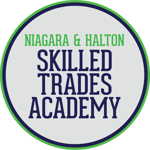
If you're thinking about getting your gas technician license in Ontario, you probably already know that you will be working primarily on furnaces. After all, we have long, cold winters here and the furnace is one of the most important appliances in the home. As a student pursuing a career in the gas fitting industry, you will one day be the one who makes sure people have furnaces that work as reliably and efficiently as possible.
But what does that mean exactly? Here's a look at some of the most common things you will encounter when you complete your G2 license and get a gas technician jobs in Ontario.
Learn about different kinds of furnaces
While there are a number of different kinds of gas-powered furnaces for homeowners, essentially, all furnaces use a gas burner controlled by an electric ignition with circulation fans that are used to pull in cold air and push hot air out through your home's ventilation system.
Of course, there are varying needs depending on the home and energy efficiency is always top of mind, so there are a few different solutions when it comes to residential HVAC systems. There are two types of furnaces that you will find in most homes, conventional furnaces and condensing furnaces — both of which use different technologies to warm homes.
When you complete a gas technician course at a private career college, you will learn about both types of furnaces and find that they have a lot in common. The main difference is found in the heat exchanger technology, which you will begin to learn about in your G3 certification course and will go into more depth in your G2 certification course.
Become a furnace efficiency expert
In Canada, the annual fuel utilization efficiency (AFUE) rating is used to measure furnace efficiency. The higher the rating, the more energy efficient the furnace. Upon completion of you gas technician license, you will know the safety and efficiency standards that are required and the current standards for mid-efficiency and high-efficiency gas furnaces.
Of course, this just scratches the surface of what you will learn when you attend Niagara and Halton Skilled Trades Academies to complete your gas technician certification and license. To find out more, book a tour to check out our facilities and talk to an instructor about our curriculum.

